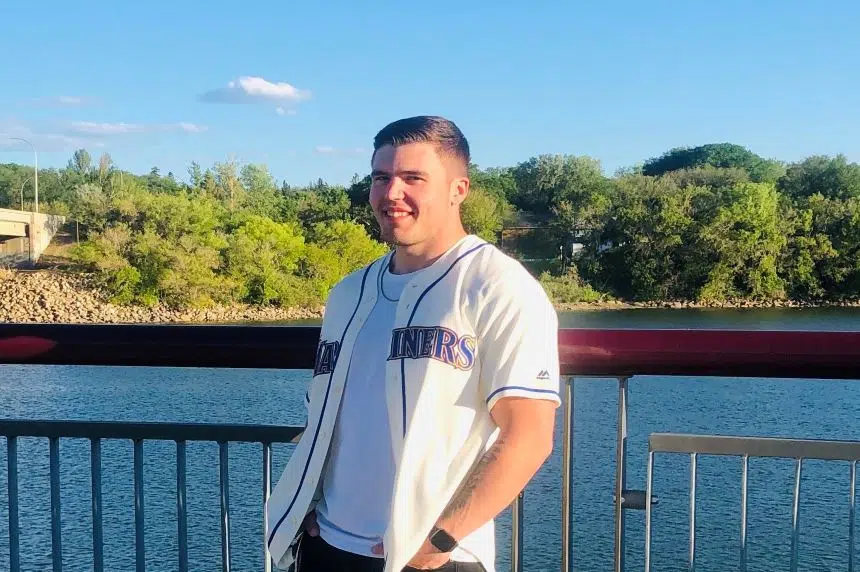When 23-year-old Brandon Lavoie got his first COVID-19 vaccine on May 28, everything went like clockwork.
He waited 15 minutes in line, got the Pfizer vaccine, waited another 15 minutes to ensure he didn’t have an immediate allergic reaction and then went home.
“I felt perfectly normal,” he recalled. “I went to the gym (and) didn’t change anything in my day. (I) had a slight soreness in my arm, but that’s like any vaccine that I’ve gotten — flu or otherwise.”
It wasn’t until the following Monday — three days after he got the vaccine — that he started having what he thought initially were vaccine-related side effects. They began with a slight sore throat as he was driving to Regina for work, and progressed later in the morning to slight chest pain, headache and body aches.
“But then by the end of the day, I started getting more and more chest pain, so I decided to go to the ER in Regina,” he said. “They did an ECG (electrocardiogram) and found out there was something going on with my heart.”
Lavoie was given two COVID-19 tests, which came back negative. He was soon diagnosed with both myocarditis and pericarditis — inflammation of both the heart lining and of the heart. His mother, Cathy, was beside herself as she raced to Regina to be with her son.
“He finally phoned me around 4:30 p.m. when the chest pains were getting really bad and he was heading back into Regina,” she remembered. “I didn’t realize how bad it was until I tried to call him back to find out which hospital he was at, so I could head out there …
“When I got there (to the Regina General Hospital), they informed me of the intensity of it and it was pretty scary.”
Cathy says her son’s heart rate dropped significantly and he couldn’t speak. He was taken to the Cardiac Surveillance Unit and given an aspirin and a nitroglycerin pill to put under his tongue. He spent two nights in the hospital before he was able to go home. He’s now off work for at least a month and has to take it easy.
“I’m told I can’t really do any physical activity or anything,” he said. “I’m just kind of sitting around, laying around. My pills do make me kind of tired, so I’ve been sleeping more than usual. I have to stay away from caffeine. So it’s basically I’m just on bed rest. I go for a little drive here and there just to get out of the house.”
He’s not sure yet whether he’ll be able to get a second COVID vaccination, or how long exactly his recovery might take.
Infectious disease physician Dr. Alexander Wong says there have been cases of heart inflammation linked to the Pfizer vaccine reported in Israel. Cases in the U.S. and Canada are also being investigated.
“The majority of the cases — virtually all of the cases — were mild, and all of the cases essentially either resolved on their own or with kind of conservative management,” Wong said. “There were no reported deaths.”
Wong adds that neither Health Canada nor the FDA have yet definitively linked cases of myocarditis or pericarditis to mRNA vaccines.
That said, it’s important for everyone, including clinicians, to be aware of the potential association of heart inflammation and the vaccines so they can be on the lookout for it. And it’s important that parents and young adults are aware as well.
However, Wong says these cases don’t happen often.
“It’s extremely rare and so I think the guidance is still very much clear,” he said. “The benefit of vaccination far, far, far outweighs risk … The risk is maybe one in 20,000 cases.”
That sentiment is echoed by Brandon and his mother as well.
“I obviously am not against vaccines,” he emphasized. “I believe it’s the right thing to do. Unfortunately, I had a bad reaction and (there’s) nothing I can do about it.”
Cathy just wants people to be on the lookout for unusual reactions after vaccination.
“Brandon is a very rare case,” she said. “His odds of getting it (they said) are very rare. Just please be aware of the signs. If you’re starting to get these chest pains and whatnot, please just go straight to the emergency room. Don’t second-guess it.”
The Saskatchewan Health Authority is now investigating Lavoie’s case after 650 CKOM specifically alerted Dr. Tania Diener — the SHA’s COVID-19 immunization co-chief — about it.
Prior to that, the incident had not been reported to public health. CKOM has since asked whether Lavoie’s case could be related to receiving the Pfizer vaccine, but has yet to receive a response.







